Propelling Early Learning and Development through High Quality Home Learning Activities
In this edition of the LINC Blog, Dr. Lisha O’Sullivan (Head of Department, Reflective Pedagogy of Early Childhood Studies, Mary Immaculate College), Professor Emer Ring (Dean of Education, Mary Immaculate College) & Shirley Heaney (LINC Programme National Coordinator) delve into various aspects of home learning, emphasizing the importance of providing a high-quality learning environment within the home setting.
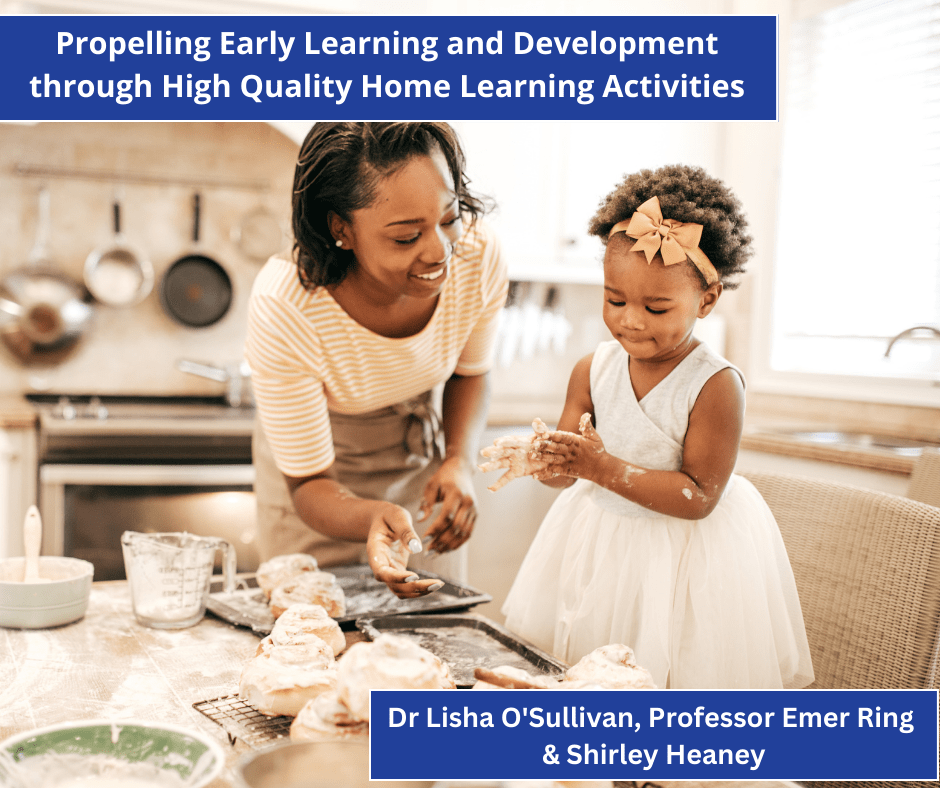
The First Five: A Whole-of-Government Strategy for Babies, Young Children and their Families 2019-2028 underscores the substantial contribution of the home learning environment (HLE) to children’s learning and development1. This aligns with international and national longitudinal research findings, which continue to highlight that the HLE matters hugely for children’s engagement and achievement in early childhood and through primary and post-primary school2,3,4.
Specifically, research has identified a range of particular home learning activities as being developmentally significant for young children including: talk; book-sharing; play and meaningful activities inside and outside of the home. Through encouraging parents to engage in such activities, early childhood teachers can support parents to build strong parent-child relationships and to provide children with the strong foundation needed for life-long well-being and achievement.
Talk
The importance of highlighting the value of ‘talk’ for children in the early years cannot be underestimated. Language is consistently identified as a strong predicator of children’s engagement and achievement. We mustn’t forget that language functions as an important thinking tool, which supports children in reflecting on, and regulating their feelings, behaviour, motivation and thinking5.
Early language skills influence later literacy outcomes, as children need to be provided with lots of opportunities to verbally express their thoughts and feelings as a pre-cursor to writing and we all need to be able to make sense of what we hear before being able to make sense of what we read6. Creating multiple opportunities for talk in the HLE not only supports children’s communication but also their self-regulation and literacy foundations. Early childhood teachers can encourage parents to:
- Use opportunities across the day, such as daily routines, for example, getting dressed, travelling to the early learning and care (ELC) setting or mealtimes to foster talk.
- Pick up on children’s interests- it is important to have something interesting to talk about and we all like to talk about things that interest us – children are no different!
- Resist the temptation to correct a child’s language and instead model appropriate language for the child.
- Emphasise sounds through singing nursery rhymes with the child or playing games such as sound bingo!
- When introducing new words, where possible point to the object to develop word-object relationships
- Use new words frequently.
Book Sharing
Creating a HLE where print is valued and providing plenty shared reading opportunities can further accelerate children’s learning and development.3 In addition to building strong parent-child relationships, opportunities to share books in the home can ignite children’s curiosity about a range of topics, introduce new vocabulary in a meaningful context and inspire children to become readers3,7. Early childhood teachers can encourage parents to:
- Select books which are developmentally appropriate and reflect children’s genuine interests.
- Provide a range of different fiction and non-fiction books relating to children’s interests. Related non-book reading materials might appeal to some children, for example, reading the writing on the cereal box or milk carton.
- Engage with books in the HLE which children are engaging with in their ELC setting,
- Make books available for children to revisit independently.
Play
Although opportunities to play in the HLE are associated with positive child outcomes, there are concerns that children today have less opportunities to play in the home than children of previous generations4,7,8. Play is not all or nothing and learning activities can be more or less playful with different types of play supporting various aspects of development8. Child-initiated free-play can support self-regulation, creativity and social competence while guided play (which remains child-initiated but involves adults subtly enhancing the developmental potential of play) can support problem-solving, vocabulary and mathematical understanding more effectively than free-play or direct instruction9. Even experiences which are not play, per se, can be made playful when adults afford children an element of choice, focus on means rather than ends, encourage imagination and an active non-stressed mind-set8. A recent national examination of parents’ and teachers’ perspectives on school readiness, found that parents emphasised academic skills more than play for children’s readiness for formal schooling10. Consequently, children will benefit when parents have opportunities to build an understanding of how learning is supported through play. Early childhood teachers can also encourage parents to:
- Provide plenty time for children to engage in child-initiated free-play.
- Provide a balance of toys and more open-ended play materials which are developmentally stimulating and reflect children’s interests.
- Show a genuine interest in children’s play interests.
- Join in children’s play as a co-player rather than as an instructor.
- Have fun and share in children’s enjoyment.

Meaningful Activities Inside and Outside the Home
Children learn a great deal through observation of, and participation in, a range of everyday experiences inside and outside the home11,12. Changing patterns in parental labour mean that children have less opportunities than ever to learn and develop through engaging in everyday household activities. Young children like to be involved in household activities as they get to do what they see adults doing and get to spend time with parents and other family members11,12. Children will be much more eager to engage in household activities when adults approach these playfully and provide plenty opportunities for social interaction11. Food preparation, housekeeping tasks etc., all provide endless opportunities for building knowledge and understanding, social skills and thinking skills. Regular experiences such as going to the supermarket or post office can further foster this type of learning as can outings to places such as the park, seaside, museum, show or to various social events. Early childhood teachers can encourage parents to:
- Invite children to participate in routine household activities.
- Make tasks manageable, providing adequate time and parent support.
- Incorporate plenty opportunities for talk and social interaction.
- Draw children’s attention to the activity going on and interactions between people in various social contexts.
- Facilitate outings which build on children’s interests.
Early childhood teachers have a wealth of knowledge and expertise which can support parents providing home learning activities which are meaningful for young children’s learning and development. It is encouraging that the First Five strategy sets out the ambition to support government funded ELC settings to meet significant quality indicators1. Given the associations between the HLE and child outcomes, enabling opportunities for more informal collaboration with parents and developing initiatives such as parent education or home visiting programmes, are critical to supporting parents in their important role as children’s primary educators. Opportunities to build strong setting-home relationships can also support early childhood teachers in continuing to enhance the quality of their programmes.
Most importantly, supporting parents in propelling children’s early learning and development through providing high quality home learning activities has the potential to transform children’s and families lives for the better both now and in the future.
First5 Ireland have provided some useful examples of activities that you can engage in at home to support and foster early learning and development:
https://first5.gov.ie/userfiles/pdf/making-a-den.pdf
https://first5.gov.ie/userfiles/pdf/role-play.pdf
https://first5.gov.ie/userfiles/pdf/baking-cooking-together.pdf
References
1 Government of Ireland (2018). First Five: whole-of-government strategy for babies, young children and their families 2019-2028. Dublin: The Stationary Office.
2Sammons, P., Toth, K., Sylva K., Melhuish, E., Siraj-Blatchford, I. & Taggert B (2015). Pre-school and home learning effects on A-level outcomes. Department of Education. Available: https://assets.publishing.service.gov.uk/government/uploads/system/uploads/attachment_data/file/472867/RR472A_Pre-school_and_early_home_learning_effects_on_A_level_outcomes.pdf
3McGinnity, F., Russell, H. & Murray, A. (2015). Non-parental childcare and child cognitive outcomes at age 5: results from the Growing Up in Ireland infant cohort. Available: https://www.esri.ie/publications/growing-up-in-ireland-non-parental-childcare-and-child-cognitive-outcomes-at-age-5
4Hughes, C., White, N., Foley, S. & Devine, R.T. (2018). Family support and gains in school readiness: a longitudinal study. British Journal of Educational Psychology, 88, 284-299.
5 Whitebread, D., Pino-Pasternak, D., & Coltman, P. (2015). Making learning visible: The role of language in the development of metacognition and self-regulation in young children. In S. Robson & S. Flannery Quinn (Eds.), The Routledge international handbook of young children’s thinking and understanding (pp. 199-214). Abingdon: Routledge.
6Stewart, N. (2015). ‘Listen to my idea!’ Communication and language in the early years, In D. Whitebread & P. Coltman (Eds.), Teaching and learning in the early years (4th ed)., (pp. 119– 135). Abingdon: Routledge.
7Whitebread, D. (2016). Homework that makes a difference: The educational benefits of play with friends and family. Toy Industries of Europe. Available: http://www.importanceofplay.eu
8Gray, P. (2013). Free to learn: Why unleashing the instinct to play will make our children happier, more self-reliant and better students for life. New York, NY: Basic Books.
9Weisberg, D. S., Kittredge, A., Hirsh-Pasek, K., Michnick Golinkoff, R., & Klahr, D. (2015). Making play work for education. Phi Delta Kappan, 96(8), 8–13.
10Ring, E., Mhic Mhathúna, M., Moloney, M., Hayes, N., Breathnach, D., Stafford, P., … Ozonyia, M. (2016). An examination of concepts of school readiness among parents and educators in Ireland. Department of Children and Youth Affairs. Available: www.dcya.ie
11Barker, J. E., Semenov, A. D., Michaelson, L., Provan, L. S., Snyder, H. R. & Munakata, Y. (2014). Less-structured time in children’s daily lives predicts self-directed executive functioning. Frontiers in Psychology, 5.
12Lancy, D F. (2016). New Studies of Children’s Work, Acquisition of Critical Skills, and Contribution to the Domestic Economy. Sociology, Social Work and Anthropology Faculty Publications. Paper 618. Available:
https://digitalcommons.usu.edu/sswa_facpubs/618
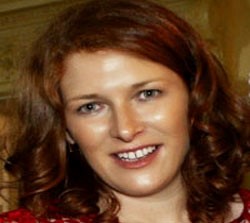
Dr Lisha O'Sullivan
Head of Department, Reflective Pedagogy of Early Childhood Studies, Mary Immaculate College
Dr Lisha O’Sullivan is senior lecturer in early childhood education and Head of the Department of Reflective Pedagogy and Early Childhood Studies at Mary Immaculate College. Lisha lectures across the BA ECCE, and BEd programmes and supervises undergraduate and postgraduate research in the faculty. Lisha has worked as a module content developer on the Leadership for Inclusion (LINC) Programme.

Professor Emer Ring
Dean of Early Childhood and Teacher Education at Mary Immaculate College
Prof Emer Ring is Dean of Education, Early Childhood and Teacher Education at Mary Immaculate College, Limerick. Emer leads and manages one of the largest education faculties in Ireland, which provides a wide range of programmes from early childhood to post-primary level at undergraduate and post-graduate levels. Emer’s previous experience includes Course Leader for the Bachelor of Arts in Early Childhood Care and Education (BA ECCE) and Head of Department of Reflective Pedagogy and Early Childhood Studies. Emer has also been District and Senior Department of Education Inspector, with a particular focus on special education. Her teaching experience spans twenty years across early years education and shared teacher of children with special educational needs Emer has led a range of research projects focused on early childhood education and inclusion. Together with colleagues in the Leadership for INClusion in the Early Years (LINC) Programme Consortium, Emer led the design, development and evaluation of the multiple-award winning programme. The LINC programme is a key element of the Irish Government’s global award winning Better Start Access and Inclusion Model. Emer supervises a wide range of undergraduate and post-graduate research at Masters’ and PhD levels. Prof Ring has recently been Country Analyst for the European Agency for Special Needs and Inclusive Education in mapping policy and provision for the inclusion of children and young people with special educational needs across the education system. Emer has also supported the work of UNESCO with its publication in 2021 Inclusive Early Childhood Care and Education: From Commitment to Action and the work of the OECD in 2021 Strengthening Early Childhood Education and Care in Ireland: Review on Sector Quality. She has extensive experience in the development of inclusion across the education system and is currently completing a publication for the National Council for Special Education focused on charting the outlines of the development of special education in Ireland 1922-2022 including in the early years, which is due to be published in Autumn 2024.
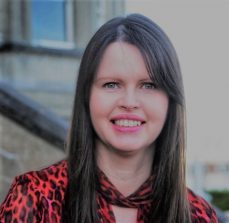
Shirley Heaney
LINC Programme National Coordinator
Shirley Heaney is the National Coordinator of the Leadership for Inclusion in the Early Years (LINC) Programme. Shirley has worked with the LINC Programme since its inception in 2016 in a variety of roles, including programme delivery, development, evaluation and management. Shirley has extensive experience in the area of Inclusive Practice in Early Childhood. Shirley’s research interests include Inclusive Practice, Child Well-Being, Universal Design, and Professional Development.
You may also like:

Empowering Inclusive Practice Through Continuing Professional Learning: Interim Evaluation Report Highlights Positive Impact of LINC+ CPD Programme
Empowering Inclusive Practice Through Continuing Professional Learning: Interim Evaluation Report Highlights Positive Impact of LINC+ CPD Programme New report explores how sustained professional learning and Communities of Practice are supporting Inclusion...
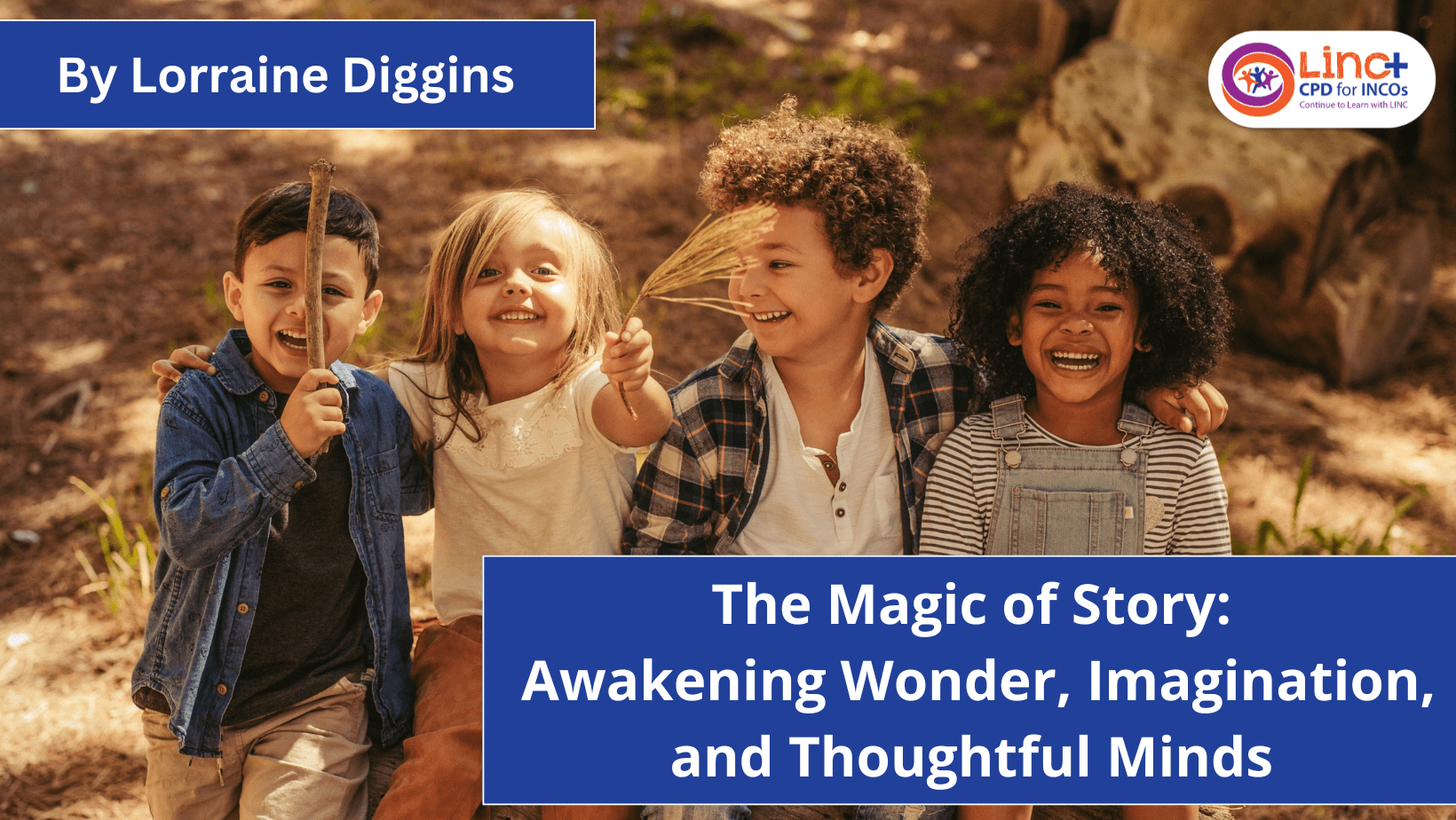
The Magic of Story: Awakening Wonder, Imagination, and Thoughtful Minds
The Magic of Story: Awakening Wonder, Imagination, and Thoughtful Minds In this edition of the LINC Blog, Lorraine Diggins, LINC+ CPD Programme Tutor, invites us into the magical world of storytelling in early years education. Reflecting on her experience as a Forest...
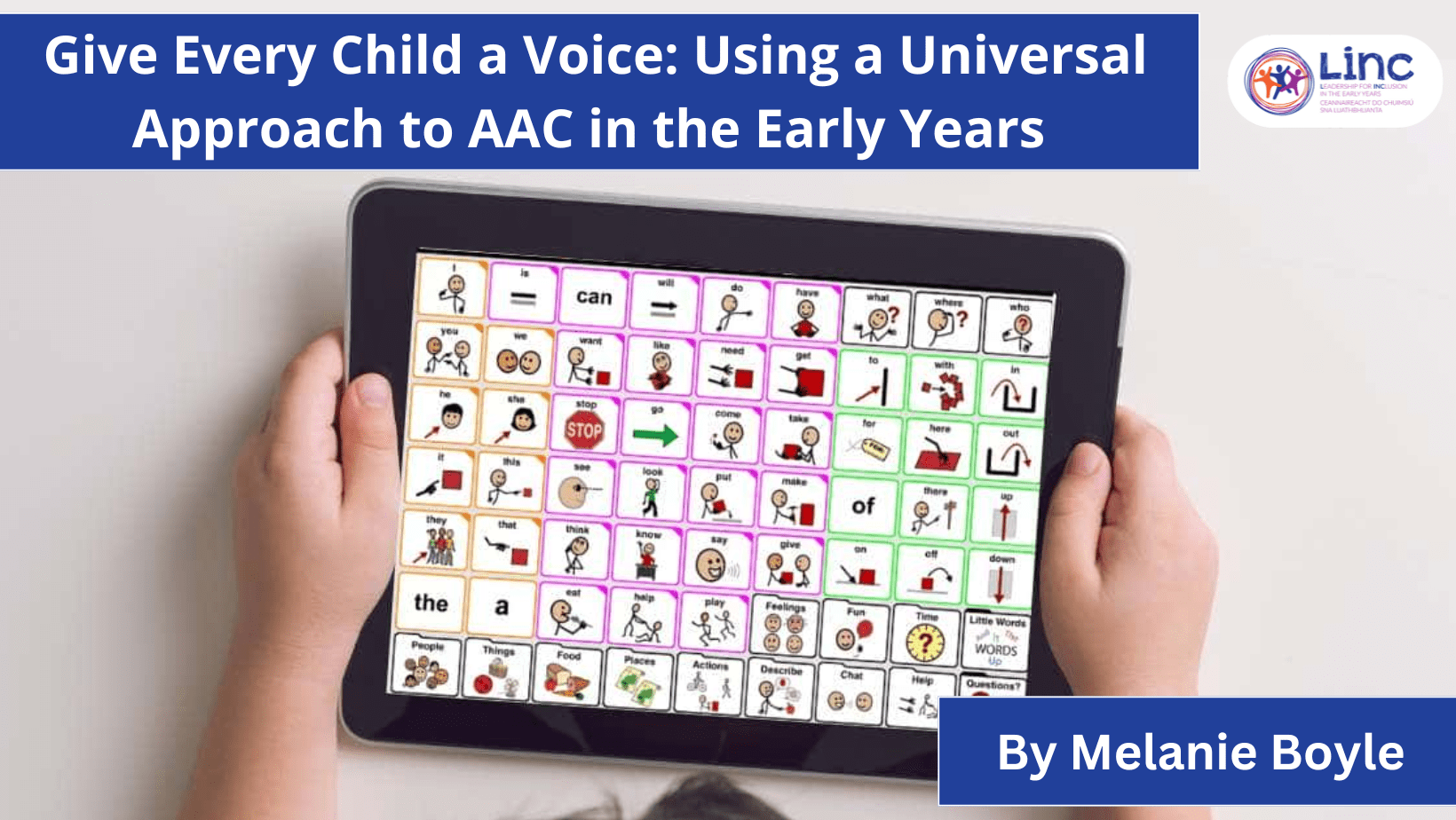
Give Every Child a Voice: Using a Universal Approach to AAC in the Early Years
Give Every Child a Voice: Using a Universal Approach to AAC in the Early Years In this edition of the LINC Blog, AAC Coach and SEN Teacher Melanie Boyle shares her insights on using a universal approach to AAC in early years settings. Drawing on her dual...
